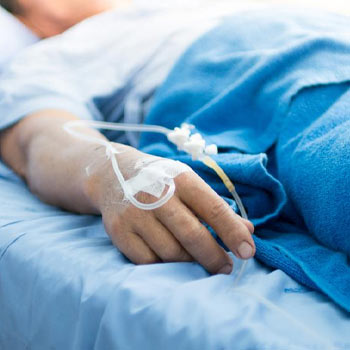Sedation and Pain Management
- Home
- Services
- Critical Care Medicine
- Sedation and Pain Management
What is Sedation and Pain Management?
Sedation and pain management are critical components in the care of patients experiencing discomfort or undergoing medical procedures. These practices aim to alleviate pain, anxiety, and stress, ensuring patient comfort and facilitating necessary treatments
What is Sedation?
Sedation involves the administration of medications to relax patients, minimize discomfort, and sometimes induce sleep. It is used in various medical settings, including surgeries, diagnostic procedures, and critical care. There are different levels of sedation
- Minimal Sedation (Anxiolysis): The patient is relaxed but fully awake
- Moderate Sedation (Conscious Sedation): The patient is drowsy and may sleep but can be easily awakened
- Deep Sedation: The patient is on the edge of consciousness but can still be awakened
- General Anesthesia: The patient is completely unconscious and unaware of the procedure
Sedation Techniques
- Intravenous (IV) Sedation: Administered directly into the bloodstream for quick effect
- Oral Sedation: Taken by mouth, often used for minor procedures
- Inhalation Sedation: Using gases like nitrous oxide, often called "laughing gas".
- Local Anesthetics: Numb a specific area of the body for minor surgical procedures

What is Pain Management?
Pain management focuses on alleviating both acute and chronic pain through various methods, ensuring the patient’s quality of life is maintained
Pain Management Techniques
Pharmacological Treatments
- Non-Opioid Analgesics: Such as acetaminophen and NSAIDs (e.g., ibuprofen) for mild to moderate pain
- Opioid Analgesics: For severe pain, such as morphine and oxycodone, used cautiously due to the risk of addiction
- Adjuvant Analgesics: Medications that primarily treat conditions other than pain but have pain-relieving properties (e.g., antidepressants, anticonvulsants)
Non-Pharmacological Treatments
- Physical Therapy: Helps improve mobility and reduce pain through exercises and manual techniques
- Psychological Support: Cognitive-behavioral therapy (CBT) and other techniques can help manage chronic pain
- Complementary Therapies: Acupuncture, massage, and relaxation techniques can provide additional relief
Treatment Methods
Assessment
- Pain Scales: Use tools like the Visual Analog Scale (VAS) or Numeric Rating Scale (NRS) to assess pain intensity
- Patient History: Consider past medical history, current medications, and pain triggers
Medication Administration
- Oral Medications: Commonly used for ongoing pain management, easy to administer
- Intravenous (IV) Medications: Provide rapid pain relief, often used in acute settings
- Epidural and Spinal Analgesia: Used for severe pain, especially post-surgical pain or labor
Sedation Techniques
- Oral Sedatives: Simple to administer, suitable for minor procedures
- IV Sedation: Allows for precise control over sedation levels, commonly used in surgeries and invasive procedures
- Inhalation Sedation: Nitrous oxide is often used for its rapid onset and quick recovery time
- Regional Anesthesia: Nerve blocks and spinal anesthesia provide targeted pain relief for specific areas of the body
Monitoring and Safety
- Continuous Monitoring: Vital signs, oxygen levels, and patient responsiveness are continuously monitored
- Adjusting Dosages: Medications are adjusted based on patient response and side effects
- Managing Side Effects: Common side effects like nausea, vomiting, and respiratory depression are promptly addressed
Sedation and pain management are essential in critical care to ensure patient comfort and enhance recovery. By employing a combination of pharmacological and non-pharmacological techniques, healthcare providers can effectively manage pain and anxiety, improving the overall patient experience and outcomes. Regular monitoring and careful adjustment of treatments ensure safety and efficacy, making sedation and pain management a cornerstone of compassionate critical care
